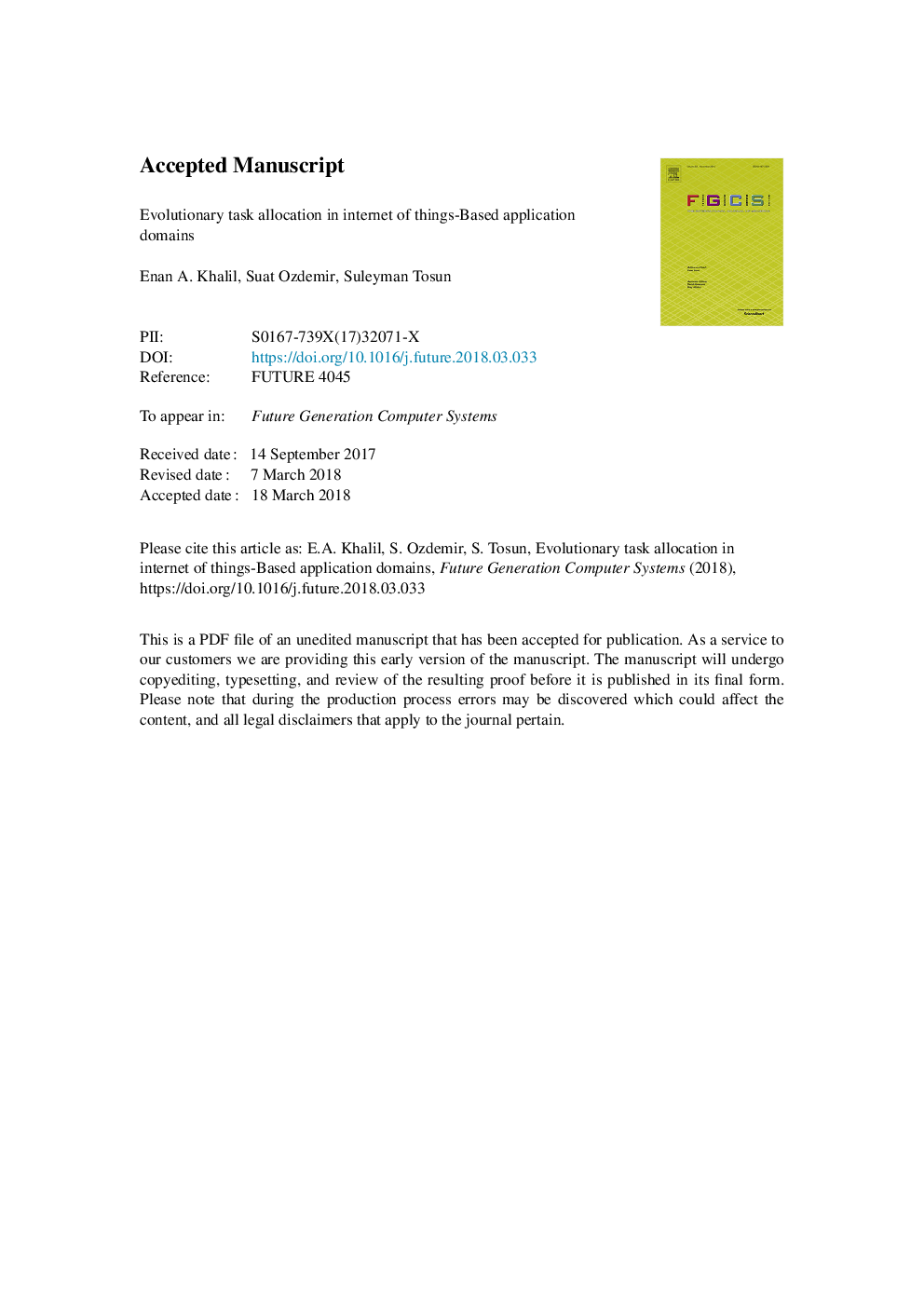ترجمه فارسی عنوان مقاله
تخصیص تکاملی تکامل در دامنه های کاربردی مبتنی بر اینترنت
عنوان انگلیسی
Evolutionary task allocation in Internet of Things-based application domains
| کد مقاله | سال انتشار | تعداد صفحات مقاله انگلیسی |
|---|---|---|
| 89680 | 2018 | 32 صفحه PDF |
منبع

Publisher : Elsevier - Science Direct (الزویر - ساینس دایرکت)
Journal : Future Generation Computer Systems, Volume 86, September 2018, Pages 121-133

